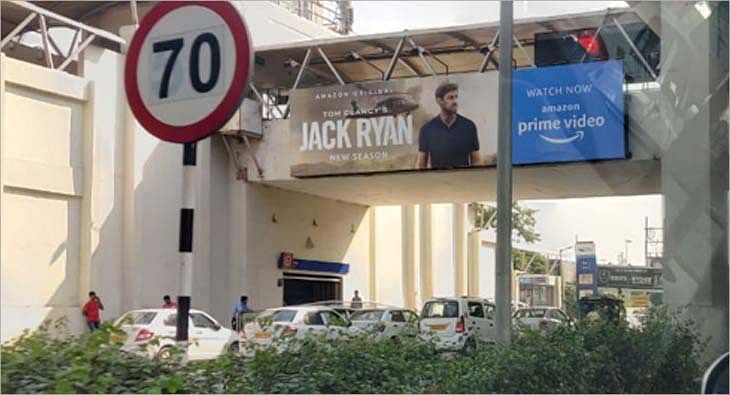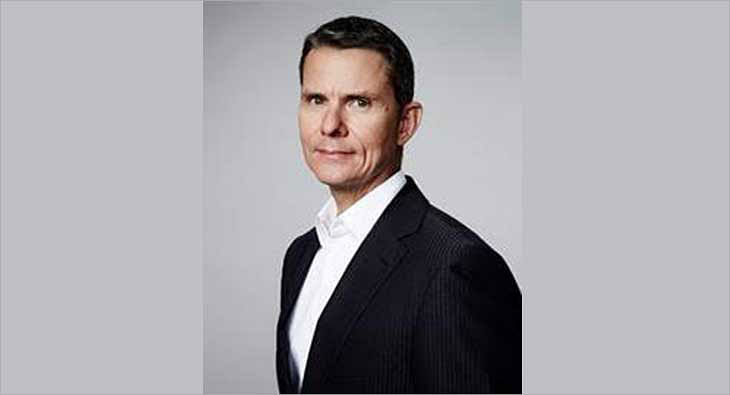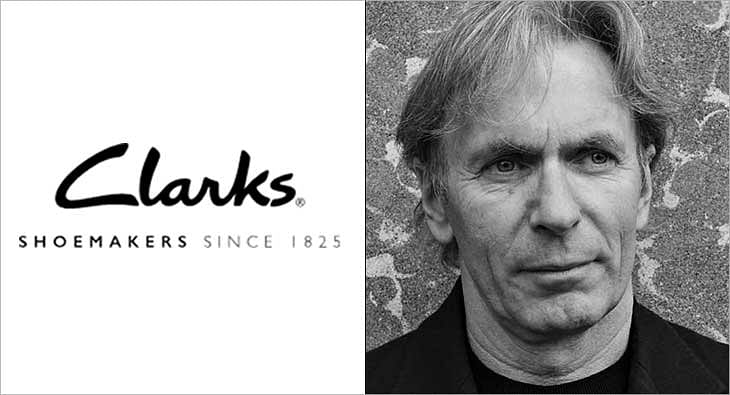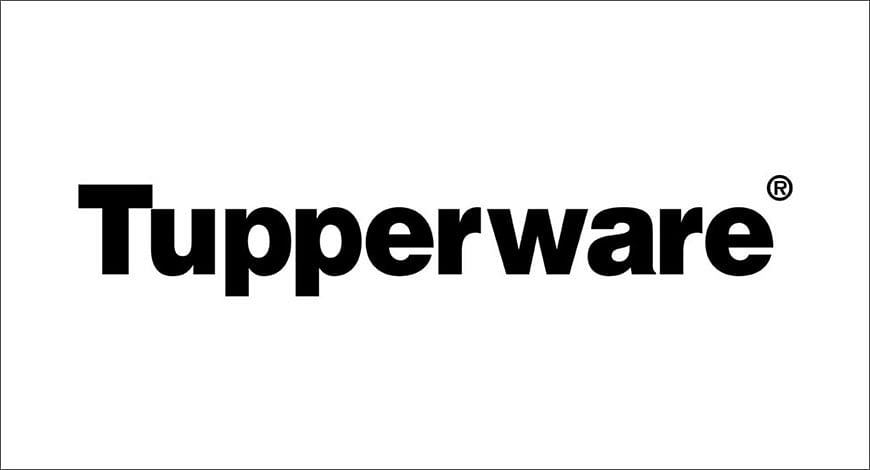International: The cost of advertising on Times Square in New York
It is a signature of America's marketing and financial prowess, a world-famous tourist attraction and one of the country's most coveted marketing communications venues: Times Square. Awesomely bright and shamelessly gaudy, its billboards towering above the Broadway and 42nd Street neighborhood are also among the country's most effective -- and most expensive -- advertisements. But how much do they cost and are they worth it?

It is a signature of America's marketing and financial prowess, a world-famous tourist attraction and one of the country's most coveted marketing communications venues: Times Square. Awesomely bright and shamelessly gaudy, its billboards towering above the Broadway and 42nd Street neighborhood are also among the country's most effective -- and most expensive -- advertisements.
But how much do they cost and are they worth it?
Consider this: While 30-second Super Bowl commercials cost $2.6 million each and reach 80 million people, the One Times Square tower draws 211 million pairs of eyeballs when the New Year's Eve ball drops, according to the president of Sherwood Outdoor, Brian Turner. "We like to think of [the Super Bowl] as just a tailgating party," he said.
$325,000 a month
Like many involved in the buying and selling of Times Square ad space, Mr. Turner is circumspect about the daily financial details. He wouldn't comment on advertising prices at One and Two Times Square but industry estimates peg the monthly rates for the 11 spaces on the two landmarks at $200,000 to $350,000 each.
According to media sellers, the rental prices for ad real estate varies widely depending, in part, on size and -- like everything else in Manhattan -- location. Electronics giant LG is said to be paying $165,000 per month for its corner-wrapping placement space above Planet Hollywood at 45th street and Broadway. The Mountain Dew sign just below it goes for $175,000 a month. Washington Mutual's six-story-high three-dimensional display of a giant beanstalk section topped by a castle costs $165,000 a month. Of course, those prices cover only the rental space and not the price of the physical sign or its supporting technology -- costs that regularly rise into the millions for the customized, weatherproof, high-definition LED sign displays that have become so popular. At 135 feet long and 26 feet wide, the J.P. Morgan Chase sign at the base of the Reuters building at 42nd Street and 7th Avenue, for example, was a $10.3 million investment. It boasts 10 times the resolution of the average TV set.
Since 1935
Most ad buys in Times Square are long-term, multiyear deals, although some movie studio and TV network ads appear for just a month or two, according to sellers. At the famous One Times Square, for example, marketers sign on for 10-year stints -- although the Coca-Cola Co.'s sign on Two Times Square has been there since 1935. Several other marketers, including Wm. Wrigley Jr. Co.'s Wrigley brand, Planters nuts and Anheuser-Busch's Budweiser have had longstanding presences in the area, but have moved around to different spots.
Incumbency in the area is a powerful advantage. Target Corp. recently bought all nine billboards for a total of 23,000 square feet on a newly constructed 42nd Street building called Times Square Tower. The impact of the unprecedented deal has been lauded by many in the industry as one of the best outdoor buys in recent time and it's highly unlikely the retailer will give up its incumbency any time soon -- thanks to the low odds of again being able to acquire so many concentrated spots.
The long-term deals also help justify the multimillion-dollar production costs for the high-tech automated and electronic boards.
Impact of technology
"As the tech grows so does the space," said Jessica Coates, spectacular specialist for Viacom Outdoor. "If it's a single ad unit -- LG, Pepsi, AT&T, Con Ed -- those are a long-term leases anywhere from 10 years on. But they're constantly changing out the creative and technology to keep up with the times."
Times Square draws 40 million annual individual visitors -- roughly equivalent to 14% of the U.S. population. Kodak estimates the area's in more than 100 million snapshots a year. If the Times Square were an Arbitron metro media market, it would rank No. 152, right there between Rockford, Ill., and Flagstaff, Ariz.
The prime billboard neighborhood stretches north-south from 53rd to 41st streets and east-west from 6th to 8th avenues. Aside from building-sized advertisements, it also boasts a work force of 274,000 and includes entertainment, finance and media companies, counting ABC studios, Ernst & Young and Conde Nast Publications among its residents.
Microcosm of global business
"It's a microcosm of global business," said Michael Steinberg, vice president of sales and marketing for Clear Channel's Spectacolor division. And that influx of business has made Times Square a place for targeted ad buys as well as ego buys. "You can put a sign in front of Lehman Brothers and Morgan Stanley for less than what you'd probably pay to run in a monthly trade that covers the financial industry," Mr. Steinberg said.
The overall annual Time Square advertising business is estimated to be worth $69 million, in a market dominated by outdoor players such as Viacom, Clear Channel, Sherwood, Van Wagner and Vista Media. Cost-per-thousand-viewers impressions for the area range from $2 to $5, compared to around $20 for a prime-time network TV buy. Individual monthly rates vary as well, depending on a variety of factors: Is the sign directly across from a busy subway stop? Can it be seen from MTV's Total Request Live studio? Does the sign make it on the annual New Year's Eve broadcast?
Immeasurable bonus impressions
Then there's the immeasurable bonus impressions through residual media -- on TV shows like CSI: New York, in movies, magazines, newspapers, postcards and coffee table books. "You watch the 6 p.m. news and you have two major TV networks broadcasting from Times Square -- ABC and MTV," said Tommy Turner, senior vice president and partner of Van Wagner Outdoor, which has had a longtime presence in the area. "That's legitimate, even if it's incalculable. It's people from Peking to Minneapolis."
Source: AdAge.com
Read more news about (internet advertising India, internet advertising, advertising India, digital advertising India, media advertising India)
For more updates, be socially connected with us onInstagram, LinkedIn, Twitter, Facebook Youtube & Whatsapp
Uber appoints Lucinda Barlow as Senior Director of Marketing for Asia-Pacific
Prior to this, Barlow was Global Marketing Director at YouTube
Uber has appointed Lucinda Barlow as Senior Director of Marketing for Asia-Pacific. Barlow will be based in Australia and will be responsible for the marketing of Uber products and businesses other than food delivery service Eats.
Prior to this, she was Global Marketing Director, YouTube. She worked for Google as head of corporate communications and public affairs and later as marketing director for Australia and New Zealand. She has also worked for Symbian, the company that created the operating system for Nokia’s range of smartphones.
‘Uber has had an extraordinary impact on the lives and livelihood of millions of people. I’m thrilled to join the Asia-Pacific team to help bring further mobility, freedom and opportunity in this exciting region,’ Barlow was quoted as saying.
‘She (Barlow) is uniquely positioned to lead Uber’s Asia Pacific brand, product marketing and reputation efforts, and support the continued growth of a stellar regional team,’ a press note from Uber said.
‘Lucinda brings over 20 years experience in internet, technology and mobile business across Asia, the United States and UK. From a former mission critical systems engineer at BHP, to leading YouTube marketing globally, to launching Symbian’s first office in China, to building marketing functions at two internet start-ups, Lucinda is an agile leader with an industry acclaimed track record of delivering impact at a staggering scale.’
Barlow wrote on twitter:
Incredibly excited for my next chapter. I'm joining Uber to lead marketing in APAC. This is a company and region I'm passionate about. https://t.co/IQB5cjfECq
— Lucinda Barlow (@lucindabarlow) October 9, 2019
Read more news about (internet advertising India, internet advertising, advertising India, digital advertising India, media advertising India)
For more updates, be socially connected with us onInstagram, LinkedIn, Twitter, Facebook Youtube & Whatsapp
WPP AUNZ's Switched On to join AKQA, Australia
The joint entity’s emphasis will be on rich, innovative brand storytelling throughout the entire customer journey
WPP AUNZ has announced its Sydney-based digital marketing and media consultancy, Switched On, will join the Australian arm of global innovation and experience design agency AKQA.
This union is in direct response to client interest and demand for comprehensive digital solutions that help define, find, connect and inspire customers across all brand interactions, from acquisition through to retention. The joint entity’s emphasis will be on rich, innovative brand storytelling throughout the entire customer journey, bringing clients’ long-term brand purpose to life whilst maintaining a laser focus on short term performance.
John Steedman, interim CEO WPP AUNZ said: “This is two teams with momentum becoming one, and a bold move by them both. It’s driven by a burning desire to provide pioneering solutions from two highly experienced senior local teams.
“Joining Switched On and AKQA formalises the close working relationship both agencies already have. The partnership uniquely combines media, tech, data and design literally under one roof. The result is a stronger client offering and WPP AUNZ is proud to support them,” Steedman concluded.
By fusing their respective MarTech and AdTech capabilities, the driving principle will be to deliver on the unfulfilled promise of large technology platforms and connected transparent media investments.
“This initiative is a terrific example of our team’s growth mindset and a shared vision of the future. Both agencies are at the top of their game. It’s a powerful combination that offers a modern, post-broadcast perspective to the interface of customer and brand,” said Brian Vella, AKQA Managing Partner.
The new offering builds on the success of AKQA Media in San Francisco, an elite business that delivers a 360-degree view of brand experience for clients including GAP, Volvo and Uber through an integrated approach to media, technology, and data.
“AKQA Media is widely regarded as one of the world’s premier media and technology agencies, something we believe will resonate well with Australian marketers,” Vella continued.
“As the worlds of marketing, technology, and customer experience converge, it’s clear a strategic reprioritisation of brand building is essential. We feel what’s needed is a unified proposition that straddles the need to balance this long-term vision with the reality of short-term performance in today’s digital age. That’s why we’ve come together,” said Chris Hitchcock, Managing Director, Switched On.
The combined entity’s capabilities offer an unrivalled depth and breadth of experience with more than 300 team members covering:
- Digital Consulting
- Performance Media
- Creative Strategy & Storytelling
- CX and Transformation Strategy
- Experience Design
- Communications Planning and CRM
- Technology and Engineering
- Commerce Data, Insights and Personalisation
- Innovation and R&D
- Social and Influencer Marketing
Switched On will continue to be led by Managing Director, Chris Hitchcock, responsible for the continued success of the Switched On team and its integration into AKQA. Hitchcock will join the AKQA Executive team, reporting into Brian Vella, Managing Partner of AKQA in Asia Pacific. Both agency brands will continue, with Switched On transitioning to become AKQA in the future.
AKQA operates in 28 markets globally, with over 2100 people worldwide. In APAC the studios who collaborate closely include Melbourne, Sydney, Auckland, Tokyo, and Shanghai. It most recently was awarded two Grand Prix Lions at the Cannes Lions Festival of Creativity.
AKQA and Switched On are part of WPP AUNZ, Australasia’s leading creative transformation company.
Read more news about (internet advertising India, internet advertising, advertising India, digital advertising India, media advertising India)
For more updates, be socially connected with us onInstagram, LinkedIn, Twitter, Facebook Youtube & Whatsapp
Helena Snowdon is Publicis Media ANZ’s new business and marketing head
The former Mindshare MD, who has also been previously associated with top global media agencies like PHD, Maxus and iProspect, replaces Mandy Henry
Helena Snowdon has been appointed Publicis Media’s head of business and marketing for Australia and New Zealand, as per media reports. The former Mindshare MD replaces Mandy Henry.
Snowdon has been previously associated with my global media agencies, including PHD, Maxus and iProspect. She was managing director Mindshare Melbourne from May 2017- September 2018.
“I feel privileged to be joining Publicis Media, working with the executive leadership team in ANZ, as well as the talented teams at Starcom, Spark Foundry, Zenith and Performics,” Snowdon was quoted as saying. “Publicis Media presents a progressive and transformative model which opens up huge opportunities for clients. I’m looking forward to playing my part in communicating this message and meaning across ANZ, and driving further impact and growth for the business overall.”
Read more news about (internet advertising India, internet advertising, advertising India, digital advertising India, media advertising India)
For more updates, be socially connected with us onInstagram, LinkedIn, Twitter, Facebook Youtube & Whatsapp
CNN International Commercial appoints Phil Nelson as Chief Operating Officer
Previously, Nelson was Managing Director, Turner North Asia and South East Asia Pacific
CNN International Commercial (CNNIC) has appointed Phil Nelson as Chief Operating Officer (COO) to lead CNN’s operational and international growth initiatives outside of advertising sales.
As COO, Nelson will oversee CNNIC’s Business Development and Strategy, Finance, Strategic Planning and International Sales Operations as well as its Content Sales and Licensing. This includes managing and growing CNN’s relationships with over 300 digital, broadcast and Out of Home content partners – from local CNN branded channels to airlines and hotels that carry CNN content live and on-demand.
Previously, Nelson was Managing Director, Turner North Asia and South East Asia Pacific. In this role, he has overseen all aspects of Turner’s business in these regions including distribution of CNN International and taking a key role in establishing local partners CNN Indonesia and CNN Philippines. Nelson has also held other business development and strategic planning roles at Turner since he joined in 2010 and has significant digital experience from his time at AOL, culminating in him being Managing Director for AOL Asia. In addition, Nelson holds an MBA from Harvard University and, prior to entering the corporate sector, was a commander in the US Navy.
Nelson will be part of the CNNIC Senior Management team, reporting directly into Rani Raad, President of CNNIC, and will work closely with a wide range of divisions across CNN and WarnerMedia. Nelson will continue to be based in Singapore in the near-term and his team is spread across the globe, particularly in key CNNIC hubs of Hong Kong, Singapore, London and Miami.
“The CNNIC business has continually evolved since it was created back in 2013 to optimise the revenue, brand and commercial partnerships across our dynamic offering of CNN content and products,” said Rani Raad. “I am delighted that Phil joins us as we enter the next chapter of our business in a role that brings together all the operational, strategic and non-advertising sales revenue under one leadership. Phil has a first-rate track record at Turner and will bring a unique skillset of business acumen, creative thinking and forensic focus.”
“After many successful and exciting years at Turner Asia, I am very pleased that my next move is within the WarnerMedia family to a brand as remarkable as CNN,” said Phil Nelson. “CNNIC has done a great job in innovating and adapting its business to stay ahead of the competition during a period of unprecedented change in the news and media industry. I am looking forward to contributing to this success in the years to come.”
Read more news about (internet advertising India, internet advertising, advertising India, digital advertising India, media advertising India)
For more updates, be socially connected with us onInstagram, LinkedIn, Twitter, Facebook Youtube & Whatsapp
Giorgio Presca named Clarks CEO
Presca to join in March, will manage operational, financial and commercial aspects of the business and lead the Clarks strategy with the Executive Committee
Clarks, the global casual footwear brand, has announced the appointment of Giorgio Presca as Chief Executive Officer.
Presca will be responsible for all operational, financial and commercial aspects of the business and will lead the Clarks strategy with the Executive Committee. He will join the company in March.
Presca, born in Trieste, Italy, has more than 20 years of experience in managing and developing global premium brands, particularly in the footwear and apparel industries, working across listed, private-equity-owned, family-run, and founder-led businesses.
His most recent position was CEO at Golden Goose Deluxe Brand, where he led the operating transformation, rapid growth and global expansion of the business.
Between 2012 and 2016, he was CEO at Geox where he executed a brand and company turnaround and returned the business to profitable growth. Giorgio has built his track record in senior leadership positions in Diesel, VF Corporation Jeanswear International division, Citizens of Humanity, Levi Strauss & Co. and Lotto.
Commenting on the appointment, Tom O’Neill, Chairman, said: “I am pleased to welcome Giorgio to Clarks as our new CEO. He brings a wealth of experience, including a deep understanding of the footwear market. He will work together with interim CEO Stella David to ensure a smooth transition over the coming weeks, after which Stella will return to her previous role as non-executive director. I would like to thank Stella for stepping in as interim CEO at a challenging time for Clarks and for her tireless and engaging leadership in the role.”
Presca said, “I cannot wait to join an iconic and historic brand like Clarks and work closely with the Board, the Executive Committee, its 13,000 people and operating partners across the world. Clarks faces the challenges of today’s competitive markets, changing distribution channels and the need to adapt to a rapidly evolving consumer environment but has the competences and assets to return to sustainable growth and profitability in the course of the next few years.”
Read more news about (internet advertising India, internet advertising, advertising India, digital advertising India, media advertising India)
For more updates, be socially connected with us onInstagram, LinkedIn, Twitter, Facebook Youtube & Whatsapp
Tupperware appoints ex-PepsiCo exec, Chris O'Leary, to its board of directors
O'Leary has more than 37 years of operational and leadership experience, having served in several strategically important executive positions at companies like General Mills & PepsiCo
Tupperware Brands has appointed Chris O'Leary to its board of directors, according to media reports.
O'Leary joins the US-based kitchen and households product company renowned for its model of direct sales as it looks to ramp up global growth. He takes up the new role immediately.
Rick Goings, Executive Chairman, Tupperware Brands said, "We are pleased to have Chris join our board. He brings more than 37 years of operational and leadership experience to Tupperware, having served in several strategically important executive positions at major global consumer product companies including General Mills and PepsiCo. We believe the combination of his deep industry knowledge, broad international experience and strong, proven leadership skills will be invaluable to the Company as we continue to execute our global growth strategy."
O’Leary previously spent 16 years at PepsiCo, Inc., where he held numerous roles, culminating in serving as Chief Executive Officer and President of Hostess, Frito-Lay, Inc. before moving to General Mills. In almost 20 years there, he became head of international business before leaving the company in 2016. He holds a Bachelor of Business Administration in marketing from Pace University and a Master of Business Administration from New York University.
Commenting on the appointment, O'Leary said, "I look forward to working closely with board members and the management team to provide new insights and perspectives as Tupperware continues to take aggressive steps to advance its performance and drive enhanced value for shareholders."
Read more news about (internet advertising India, internet advertising, advertising India, digital advertising India, media advertising India)
For more updates, be socially connected with us onInstagram, LinkedIn, Twitter, Facebook Youtube & Whatsapp
International: Hottest media property that's not for sale? Time Inc.But skeptics question top execs' real long-term intentions
Time Inc. consistently makes impressive double-digit profit margins and is considered by many a good media business, a still-growing company with as-yet-unlocked potential synergy with the rest of the Time Warner operation. Yet everyone from the Time & Life Building to Wall Street and Nebraska keeps on wondering when the property is going to be dealt.
Time Warner chief Dick Parsons recently told a "town hall" meeting of 400 employees about a conversation he'd had with Omaha investment wizard Warren Buffett on the subject of selling Time Inc. "As your friend, don't do that, it's a good business," said Mr. Buffett, according to people who heard Mr. Parsons recount the story. "But," he added, "if you do sell it, sell it to me."
And there's the rub. Time Inc. consistently makes impressive double-digit profit margins and is considered by many a good media business, a still-growing company with as-yet-unlocked potential synergy with the rest of the Time Warner operation. That fact, along with Mr. Parsons' persistent denials that there are any plans to sell, ought—one might think—to kill this story. Yet everyone from the Time & Life Building to Wall Street and Nebraska keeps on wondering when the property is going to be dealt.
It's also been noted that Mr. Parsons, whose contract is up in May 2008, is not Jeffrey L. Bewkes, Time Warner's president-chief operating officer and the company's heir apparent. And Mr. Bewkes has repeatedly said that nothing is off the table. "It is constantly looked at," Mr. Bewkes said at a Goldman Sachs media conference last September. "What should we not have? Or what should we get?" Many people believe Mr. Bewkes would sell Time Inc. for the right price.
A note to skeptics: Time Inc. could probably fetch bids above $16 billion. Try finding a CEO who wouldn't at least slow down for a look.
Anyone following the ongoing upheavals in media—not to mention the jangled nerves following round after round of layoffs at Time Inc., where McKinsey & Co. is now examining areas like information technology and finance—won't be surprised to hear that questions over Time Inc.'s place at Time Warner aren't going away.
The Monday after Mr. Parsons' "town hall," as it happens, a Bear Stearns analyst raised his rating on Time Warner to "outperform" partly because he believes the company, particularly once Mr. Bewkes takes over, will get more aggressive about restructuring its portfolio. To wit: It could merge AOL with another leading web property—or perhaps could spin off Time Inc.
"We think that the publishing division is the least attractive strategic fit with Time Warner's other video-centric businesses such as cable networks, cable systems and filmed entertainment," said the analyst, Spencer Wang, in his note. Combined with challenges in the magazine business such as slow growth due to online cannibalization, he said, there could be several benefits of divesting publishing.
A year ago, Reed Phillips—managing partner at the media-investment bank DeSilva & Phillips—would have given a Time Inc. sale or spinoff no chance. "Today I would no longer say 'never,' because Time Warner has continued to change and evolve," Mr. Phillips said. "I get the clear impression that the company is focused on operating performance and measures how each division is doing and how each division contributes to the overall company. And if there's a sense that part of the company is no longer contributing in the way that top management expects, I don't think anything's sacred."
Top management at Time Warner, like that at any public company, is under pressure to improve revenue and earnings year after year, no matter the market conditions. Although Time Inc. Chairman-CEO Ann S. Moore is expanding quickly online, moving the needle with print has proved much harder. That has forced strikingly difficult decisions, most recently last week's death sentence for the Life newspaper supplement.
"Wall Street wants to see growth," said Robert Safian, the Fast Company editor and Mansueto Ventures managing director who worked for Time Inc. titles Money, Fortune and Time during the last decade. "The bigger your base, the more you need in raw terms to show it. But if you back Time Inc. out of Time Warner and there's more growth in other divisions, then the overall growth might look bigger."
Plenty of people still consider the idea—first pushed to the front burner during Carl Icahn's 2006 drive to break up Time Warner—to be unlikely, impossible or ridiculous. For one thing, "Time" is the name on Time Warner's door, said Andrew Swinand, president-chief client officer at media agency Starcom USA. "I would be shocked if they sold it," he said. "For me, the biggest thing is that Time Warner as a company needs to be dynamically flexible. I still believe that the initial vision of integrated media was correct. I just believe that they haven't activated it."
The tax hit on any outright sale would be painful too, if less so in a spinoff to shareholders (which could lead in turn to a takeover). Time Inc. also owns huge stores of content that should prove valuable in a Long Tail world. And the company has been securing better position for showing growth by cutting costs, redirecting investment to digital projects, selling 19 magazines and closing two others.
"Corporate has worked closely with Time Inc. in developing its new online strategy, which is showing success," a Time Warner spokesman said. "We don't have any plans to spin off Time Inc." A Time Inc. spokeswoman referred inquiries about the company's relationship with Time Warner to the parent company.
Finally, there's the issue of price, but that could cut either way. Two media bankers said a premium property like Time Inc.—which really has no equal in its business—would command a sky-high multiple of perhaps 15 times earnings before interest, taxes, depreciation and amortization. Last week's client note from Bear Stearns estimated that Time Warner's publishing division will have 2007 EBITDA of nearly $1.1 billion, which could put a bid close to $16.5 billion.
That is not a figure anyone would take lightly—neither a potential bidder nor the potential seller.
But the money is out there. "Private-equity firms have become so much bigger in the past year that now that kind of bite size is attainable," Mr. Reed said. "A private-equity firm could do that transaction today. It would have been much harder to do a year ago, but they've raised so much money, and you see all the time that they're looking at big media opportunities."
Time Warner shareholders wouldn't let management ignore a $16 billion offer either. "Companies can't just stiff-arm shareholders," Mr. Reed said. "They really have to listen today, more and more."
Meanwhile, the thousands of Time Inc. employees who survived the cuts of 2005, 2006 and 2007 walk the corridors occasionally wondering what Ms. Moore, Mr. Parsons and Mr. Bewkes really think of them.
"I don't think anyone is confident that Time Inc. will stay part of Time Warner," said one former Time Inc. executive, who predicts the conglomerate will eventually split up. "From the CEO down, everyone questions whether or not Time Inc. will be spun off."
There certainly could be advantages for an independent Time Inc., such as a better ability to focus on long-term strategy. Mr. Swinand, the sale skeptic, said Time Inc. would have fewer resources on its own but would be speedier and more flexible.
Mr. Reed, the agnostic, said Time Inc. wouldn't lose much if separated from Time Warner and would retain enormous clout. "They would also be able to invest much more aggressively in taking the brands into the digital realm," he said. "They're doing a pretty good job already; it's just that they're hamstrung by having to deliver earnings to the parent company."
All the talk of speed and aggression, as a matter of fact, reflects the reality of the magazine business today. It's in transformation. The business will survive, but those publishers that adapt best will thrive the most. Others will keep having to make difficult choice after difficult choice, pinned between the need to prepare for the future and the state of the field today. Even though Time Inc. owns some incredibly powerful brands, really changing the business model might take a "reset" year—which Wall Street rarely allows public companies.
As things stand, the need to make short-term numbers all the time is breeding resentment.
"Basically the dollars are going into digital at that company," the former Time Inc. executive said. "If you're not one of the four weeklies, people are very frustrated. They are not putting money behind transforming the women's lifestyle publications. Those are the ones that have had constant growth, and yet they're not getting the investment."
Another former staffer recalled the speculation among Time Inc. employees. "There was hallway chatter about it at different times," the ex-staffer said. "Sometimes it was hopeful. 'Wouldn't it be great? Will Warren Buffett buy us?' Other times people said, 'Who would buy us and what would they do with us? They might squeeze us even harder. That Midtown real estate is expensive. Maybe Time Inc. could move to Princeton, N.J.'"
Source: Adage
Read more news about (internet advertising India, internet advertising, advertising India, digital advertising India, media advertising India)
For more updates, be socially connected with us onInstagram, LinkedIn, Twitter, Facebook Youtube & Whatsapp














 Share
Share




